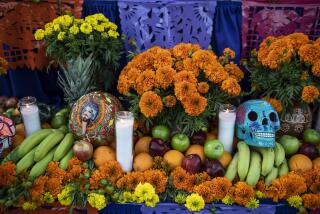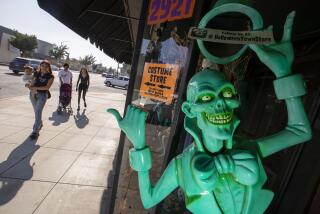Halloween Origins
I would like to assure Elaine E. Minamide (“Bedeviled by Halloween,” Voices, Oct. 17) that she needn’t worry about Druids. What little we know about them we get from Julius Caesar and other classical writers, and a bit more from early medieval Irish sources. None of them speak about sinister rites on Oct. 31, the end of the Celtic year. A plausible case has been made that All Saints’ Day was set on Nov. 1 in Eighth Century Ireland, to coincide with the beginning of the new year (see John Hennig, “The Meaning of All the Saints,” Medieval Studies 10, 1948, 147-61), but there is no evidence to indicate that it was meant to offset remnants of superstitious high jinks or low jinks that took place on the previous day or evening. The commemoration of the faithful departed on Nov. 2 (All Souls’ Day) was a later Continental development, though perhaps it was partially inspired by an Irish commemoration on Nov. 14.
So when did the idea of spooky Halloweens arise? Rather late, I’m afraid, at least in the English-speaking world. The first relevant record I can find in Great Britain is a poem called “Halloween,” by John Mayne, which appeared in a Scottish magazine in 1780. It doubtless inspired the similar poem of the same name published by Robert Burns in 1786. Burns added explanatory notes “for the sake of those who are unacquainted with the manners and traditions of the country where the scene is cast,” that is, among the peasantry in the west of Scotland. He explains, as if it would be unfamiliar to most of his readers, that Halloween “is thought to be a night when witches, devils, and other mischief-making beings are all abroad on their baneful midnight errands; particularly, those aerial people, the fairies, are said, on that night, to hold a grand anniversary.” But in the poem itself, he only mentions fairies dancing, and he only describes various fortune-telling rituals performed by a group of courting couples, like pulling up a cabbage to see what one’s future spouse will be like. He makes it sound like great fun.
It is entirely possible, of course, that some of the rural Scottish beliefs in Burns’ time concerning the evening before All Saints’ Day were leftovers from pre-Christian times, but, if so, they must have been pretty diluted and should have given little cause for religious concern. I am still looking for hard evidence of earlier Halloween celebrations, and I would be grateful for any light that readers can throw on the subject. Meanwhile, I urge everyone to go with the flow and enjoy the festival as it has developed in our culture.
ANDY KELLY
Professor of English
UCLA
More to Read
The biggest entertainment stories
Get our big stories about Hollywood, film, television, music, arts, culture and more right in your inbox as soon as they publish.
You may occasionally receive promotional content from the Los Angeles Times.










